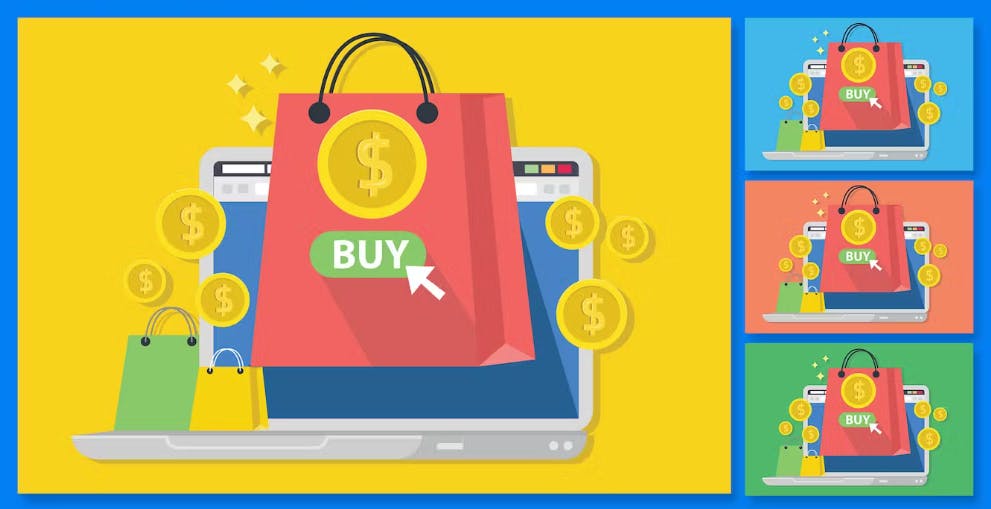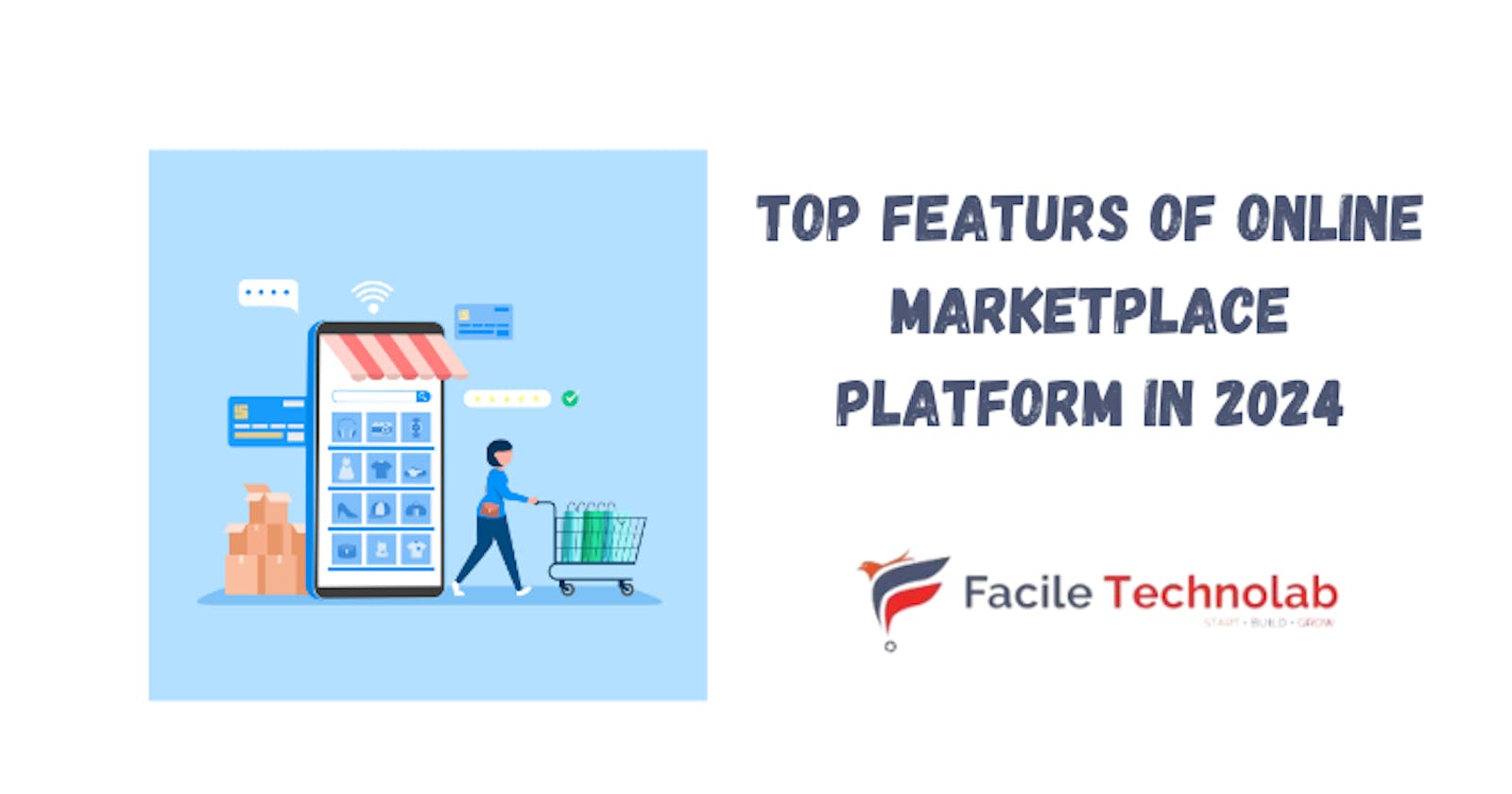In 2024, online marketplace platforms have evolved with cutting-edge features to enhance user experiences.
E-commerce has become thriving businesses. Their number grows by leaps and bounds and shows no signs of stopping, despite the tough situation in the economy. As a result, online marketplace companies seek new ways of winning and retaining customers.
Prominent digital marketplace trends include using advanced technologies to create highly personalized experiences, provide wider opportunities for customers, and make marketplace operations sustainable.

AI-Powered Personalization:
In the ever-expanding digital landscape, where choices seem limitless, AI-powered personalization has emerged as a game-changer. Whether it's selecting the next movie to watch from thousands of options or navigating the vast array of products on e-commerce platforms, AI recommendation and personalization engines are becoming indispensable tools for enhancing customer experiences.
AI personalization is helping to address the “choice overload” phenomena where individuals report lower choice satisfaction when faced with too many options. AI personalization is a win-win for both consumers who experience greater satisfaction and businesses that are finding whole new corridors of competition. Staid industries can find new growth in a systematic exploration of the long tale of additional competitive offerings. AI is just beginning to revolutionize personalization, and in this, it will enable a completely new scale of business that was previously unsustainable.
Augmented Reality (AR) Shopping:
Augmented Reality is the Future of Online Shopping.One AR-powered shopping experience on the app lets users customize and virtually try on a pair of Nike Air Force 1s. Sponsored by the brand, the filter prompts you to toggle through and change the color (choose between shades like Magic Flamingo, Blue Void and Honeycomb) and texture (smooth or ripple leather) of 13 different parts of the sneakers before hitting the “try on” button to see a digital 360-degree overlay of what they would look like on your feet. If you like what you see, you can click “shop now” to immediately purchase the pair you’ve designed.
Blockchain-Powered Security and Transparency:
The dynamic field of technology has seen effective alliances that expand our capacities and make our lives easier. We can now shop with greater comfort and convenience than ever before thanks to the integration of mobile applications and eCommerce. As eCommerce developed, it merged with fintech and digital payments, enabling us to complete transactions whenever and wherever we choose.
Voice Commerce Integration:
Voice commerce is the process or action where consumers use voice commands to search and purchase products online. This helps to reduce the end-users’ dependence on hardware like keyboards and screens.
Artificial intelligence is developing quickly. This gives virtual assistants like Alexa, Google assistant and Siri a larger range of words to use and more natural language. This means that providing tailored answers to specific questions increases the audience’s trust in virtual assistants. This trust makes shoppers more likely to use smart speakers and virtual assistants for online shopping leading to an increase in conversational commerce.
In 2011, voice assistant, Siri, became available on iPhone. Google soon released Google Now. This voice assistant had the ability to anticipate user behavior. It also provided updates on the weather and traffic reports.
Social Commerce Integration:
Social commerce is a rapidly growing branch of e-commerce that uses social networks and digital media to facilitate transactions between businesses and customers. It encompasses activities such as product discovery, reviews, ratings, sharing, recommendations, transactions and loyalty programs.
In other words, social commerce taps into the growing use of social media platforms to promote and sell products or services directly on the social media sites users log into daily.
Subscription-Based Services:
Subscription-based ecommerce is a business model implying that customers pay a recurring fee (monthly or yearly) to get scheduled product delivery or anytime access to a service. Key benefits subscriptions offer to consumers are convenience and lower cost (brands commonly offer discounts for subscribers). Businesses favor subscription ecommerce for the predictability of subscription-driven revenue.
The three types of subscription services are:
Replenishment – provision of fast-moving consumer goods like food, care products, household supplies.
Curation – offering personalized or themed selections of products in categories like cooked meals, beauty products, flowers.
Access – granting access to limited collections or early access to new collections.
Instant Checkout and Payment Options:
A fast and frictionless checkout process can dramatically increase your conversion rates. That’s why businesses are constantly looking for new ways to improve the checkout experience.
The latest fast-growing approach goes by various names like express checkout, express payment methods, one-click checkout, Click to Pay, instant payments, one-click payments, Checkout as a Service, and maybe a few more we don’t even know about. As a category, they can be referred to as "express flows".
The aim of express flows is simple: let customers check out and pay with the least amount of clicks.
They've transformed the online buying process. What once required customers to manually fill in many form fields can now be achieved in a few clicks. Express flows make this possible by storing payment details and sometimes shipping and billing information.
Sustainability Initiatives:
For all eCommerce brands, sustainability should be on top priority to focus. Consumers want brands that are aligned with sustainable eCommerce, this means changing things at every stage of your business, from reducing single-use packaging, and offsetting carbon emissions, to giving back to the planet.
This article is cross-posted from Facile Technolab Blog. Read the original article here.
